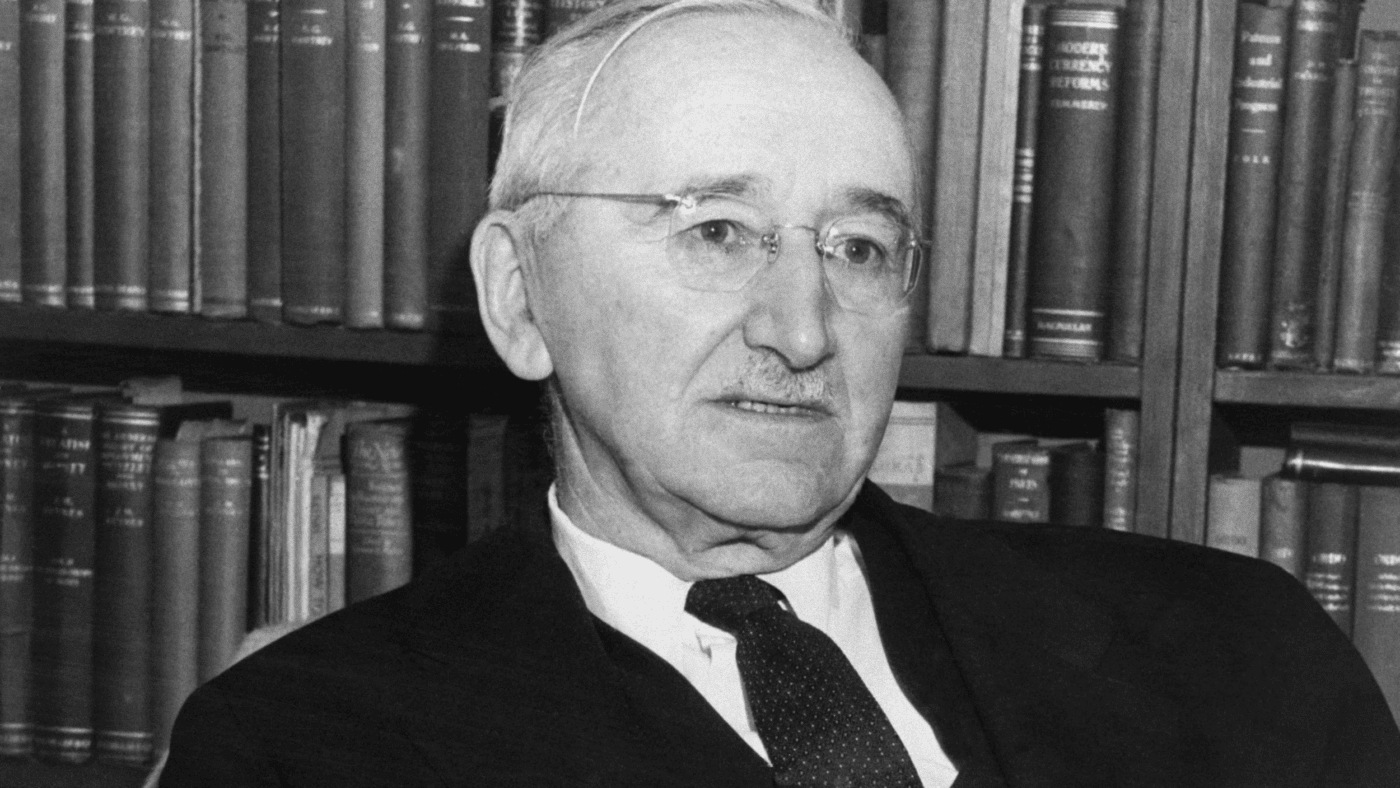Half a century ago today, the Austrian economist Friedrich August von Hayek delivered his Nobel Prize lecture, after being awarded the 1974 prize for economics alongside Gunnar Myrdal. This was, as the Royal Swedish Academy of Sciences explained, a recognition of Hayek’s ‘theory of business cycles and his conception of the effects of monetary and credit policies’, as well as ‘new ideas with regard to basic difficulties in “socialistic calculating”’. Hayek’s Nobel lecture was titled ‘The Pretence of Knowledge’, and was a critique of the economic profession, spelling out where, in Hayek’s view, mainstream economics had gone wrong.
At the Institute of Economic Affairs, we have decided to mark the occasion by re-publishing his acceptance speech with three new introductions, in the form of a short book entitled ‘Hayek’s Nobel: 50 Years On’. This is because, to us, Hayek was not just any economist.
For a start, Hayek was a prolific IEA author. His IEA publications ‘Confusion of Language in Political Thought’ (1968), ‘A Tiger by the Tail: The Keynesian Legacy of Inflation’ (1972), ‘Economic Freedom and Representative Government’ (1973) and ‘Choice in Currency: A Way to Stop Inflation’ (1976), but especially his book ‘Denationalisation of Money’ (1976), still attract readers to this day.
More importantly, though, Hayek was an indirect founding father of the Institute. This is true in two ways. Firstly, it was Hayek’s book ‘The Road to Serfdom’ (1944) which radicalised the future founder of the IEA, Antony Fisher, and propelled him to action.
‘The Road to Serfdom’ was a warning of the dangers of planned economies, a model which had plenty of influential advocates in Britain at the time. Unlike many of his contemporaries, Hayek was not blinded by the seeming initial success of the Soviet Union’s industrialisation campaign. He did not believe that planned economies were viable in the long term, for reasons he explained in his paper ‘The Use of Knowledge in Society’ (1945) and elsewhere. This was his contribution to the so-called ‘Socialist Calculation Debate’, a debate among economists about the theoretical feasibility of socialist economic planning. It was a big part of what won him the Nobel Prize.
But it was not the main focus of ‘The Road to Serfdom’. Hayek’s problem with planned economies was not just that they would impoverish people, but also that they would inevitably lead to tyranny. Too many of Hayek’s contemporaries attributed the repressive character of the Soviet Union to Russia’s history and national character, rather than to its economic model. They believed that Britain could adopt a Soviet-type economy while preserving its democracy and civil liberties. Hayek showed that that was not possible, and indeed, nobody has done it to this day.
The second reason why we consider Hayek an indirect founding father of the IEA is that his paper ‘The Intellectuals And Socialism’ (1949) is the closest thing you can find to a blueprint for the future IEA, and to a lesser extent, other Westminster think tanks.
Hayek had a model of social change in which politicians have relatively little agency: they have to work within the Zeitgeist as they find it, and they cannot do much to change it. The role of a think tank (although Hayek did not use that term, which would probably have meant nothing to him) was therefore not to influence individual politicians or political parties. It was to reach the opinion formers, and change the wider climate of ideas. This has been the model of the IEA since its inception.
But remembering Hayek’s Nobel Prize and his wider contributions is about more than navel gazing. There was a time, from the late 1980s to the mid-2010s, when it looked as though a lot of Hayek’s ideas had become redundant. We seemed to have reached Francis Fukuyama’s ‘End of History’, characterised by a broad acceptance of the market economy and liberal values across most of the mainstream political spectrum, if with a thousand qualifications. This is no longer true today.
Over the past ten years or so, we have seen a revival of socialist ideas, in tandem with a woke, progressive anti-liberalism.
Too many people on the political Right have responded by either making endless concessions to the woke socialist Left, or by adopting a deliberate anti-intellectualism, or by avoiding talking about principles and big ideas altogether. None of this will stop the rising tide of bad ideas, though. Only a revival of superior ideas will do, and for that, Hayek’s writings remain a treasure trove.
Click here to subscribe to our daily briefing – the best pieces from CapX and across the web.
CapX depends on the generosity of its readers. If you value what we do, please consider making a donation.


